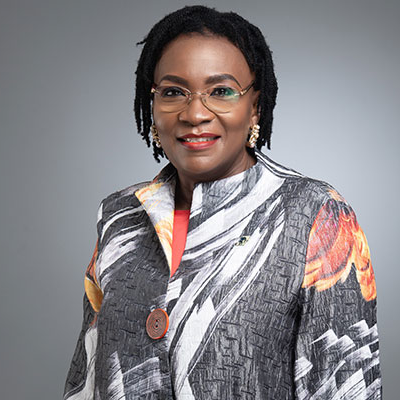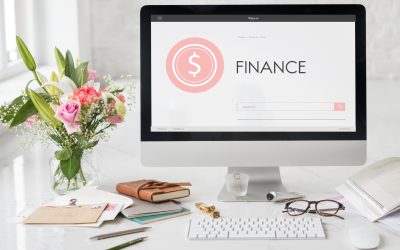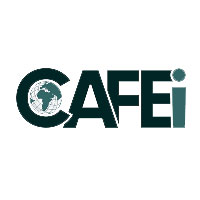IWD: Breaking the bias to further financial Inclusion in Nigeria

We are all too familiar with the gender biases in our society today. From birth, children are conditioned to play, behave, dress, and think a certain way based on their gender, with females perceived as the weaker sex.
These biases have shaped the dreams and aspirations of some young women, inhibiting their desire and potential to achieve more, and, in some cases, they have passed these ideologies on to their children. It, therefore, comes as no surprise that the annual International Women’s Day (IWD) is so widely and actively celebrated as it provides the platform to reshape thinking, challenge mindsets, and this year, #BreakTheBiases that hinder female advancement in today’s world.
One area where females still significantly lag their male counterparts in Nigeria is financial inclusion. The effects of the COVID-19 pandemic on our family and societal adjustments would have been influenced by certain biases which leave women disadvantaged. As we explore the impact this has had on financial inclusion, society must begin to identify these biases and challenge them to create a more inclusive environment that contributes to the overall economic advancement of our nation.
COVID-19 and the Financial Inclusion Gender Gap in Nigeria
The EFInA 2020 Access to Financial Services report showed that of the 38 million financially excluded adults, 56% are female. This indicates the considerable effort still required to increase financial inclusion for females, especially as the population continues to grow. The report highlighted essential drivers of financial exclusion, including the lack of income and lack of education, both of which have been exacerbated by the pandemic.
• The shut-down of many of the world’s economies in 2020 meant that several businesses folded, resulting in redundancies and driving up unemployment. According to recent reports from the UN and World Economic Forum (WEF), Nigerian women make up the larger population of lower-paid jobs and operate most of the micro, small and medium-sized (MSME) businesses in the informal sector, and the pandemic severely impacted these.
As a result of losing their jobs and businesses, many women returned to the home as primary caregivers, dependent on their husbands or other male family and community members to provide financially.
The pandemic also significantly impacted education, where many were kept from their classrooms and directed to alternative channels such as radio, television, and digital media platforms to continue their learning. While this might have made education more accessible in some parts of the world, recent studies show that it slowed progress in other regions where gender biases that challenge the female right to education exist. These will have a lasting effect on the females affected and the larger Nigerian economy as we look to rejuvenate and grow our national income in the coming years.
However, the pandemic was not all bad news for female financial inclusion in Nigeria, as the adoption of electronic payments, mainly through agent banking and mobile money, became more popular.
Despite a gender gap of 34% for digital integration (GSMA, 2021), 11% of women used mobile money for the first time because of the pandemic compared to 12% of men. This puts digital at the forefront as a necessary tool to improve financial inclusion in Nigeria today.
Despite the pandemic appearing to set us back in some gender considerations, it has also provided a platform for digital transformation, a major enabler to further financial inclusion for all and address some of the biases that have shaped our society.
The Danger of Conscious and Unconscious Biases
In exploring our societal biases, we must understand that some are out of choice – a deliberate decision that favours one group over another; in contrast, others are not immediately apparent unless called out by an observing party.
Consider a recent IMF study (Access to Finance, 2020). The IMF noted that borrowing terms such as interest rates and collateral requirements are generally more stringent for women than men when accessing credit.
These discriminatory requirements are selected based on what appear to be biases that give the impression that women are riskier investments than men despite women being found to be more risk-averse.
Many Nigerian banks have made credit more attractive for women by creating female-focused products and offering business coaching to empower female entrepreneurs. Still, interestingly, the IMF study also found that the removal of discriminatory policies made no difference to the attitude of women with regards to accessing credit, i.e., even if banks were to reduce collateral requirements and lower interest rates, some females were still unlikely to apply for credit. In effect, women were self-selecting themselves as ineligible for access to credit, and this demonstrates the far-reaching consequences of inaccurate perceptions of the female gender in our environment today.
Biases, whether conscious such as the decision to create stricter borrowing requirements for females or unconscious, such as self-elimination for access to credit, are unfair and slow progress. As the world begins to manage COVID-19 better, governments will look to deploy policies that quickly kick-start their economies and return people to employment and commercial activities. No doubt allowing gender biases to exist as we emerge from this pandemic would impede success for any nation.
Breaking Biases
It is evident that our cultural gender biases have contributed to the impact females have been able to make in Nigeria today. But as we emerge from the pandemic, and with a general election on the horizon, there is an opportunity to strive for more women in leadership positions across every echelon of our society to drive towards more sustainable recovery.
Education and sensitisation programs are essential for encouraging the mindset that challenges biases. We need to get our young girls back into the school environment to break the cycle of viewing the purpose of the female child as solely taking care of the home. In addition, corporations must review their marketing policies, particularly when advertising cooking or cleaning products which often portray women as the gender responsible for both chores.
We need to get women back into the workplace, wherever they might choose it to be.
Organisations must review their gender policies for biases regarding specific job roles and ensure that work is compensated based on the actual deliverables and not perceived ability to deliver.
Financial literacy programs aimed at rural communities and professional networks such as Women in Business (WIMBIZ), Women in Successful Careers (WISCAR), and the Professional Women’s Roundtable (PWR) are vital to reshape mindsets and empower women to be bold enough to make independent financial decisions to secure their futures. Financial institutions must continue to engage with their female customers to understand their financial needs and adequately cater to them.
Supporting gender equality movements is also integral to breaking gender bias. Pioneers of gender-equality movements in Nigeria include the ‘Lioness of Lisabi,’ Chief Funmilayo Ransome-Kuti, who, along with a host of achievements, formed the Nigeria Women’s Union to advocate for women’s rights; and Margaret Ekpo, the first female to win a seat in the Eastern Region House of Assembly and a prominent and fiery activist for the rights of Nigerian women.
Both women fearlessly challenged government policies that left women disadvantaged, led delegations abroad to speak on and advocate for gender equality in Nigeria, and were instrumental in Nigerian women’s right to vote and ensuring they exercised that right. Their success inspired movements today such as the Feminist Coalition (Femco), an organisation formed by young and successful female professionals which include Odunayo Eweniyi, Co-founder and Chief Operations Officer, PiggyVest; Damilola Odufuwa, Global Head of Product Communications, Binance; and Kiki Mordi, investigative journalist popularly known for her BBC documentary on Sex for Grades. Femco’s objective, according to their website, is to ‘champion equality for women in Nigerian society with a core focus on education, financial freedom, and representation in public office.’ They were at the forefront of the #ENDSARS movement of 2020 and recently launched an education program for young girls. Efforts like these should be supported and encouraged to amplify the need for gender equality in our society today.
It is essential that breaking the gender bias is viewed as the responsibility of everyone and not women alone. Last week, the House of Representatives voted against five points of a gender-equality bill, demonstrating that despite the progress women have made to date, there is some way to achieve equal consideration even at the highest level of government. The National Assembly voted against a Nigerian woman’s foreign-born husband’s access to Nigerian citizenship, a Nigerian woman becoming an indigen of her husband’s state after being married for five years, 35% appointed positions for women, women having 35% affirmative action in party and administration leadership, and specific seats for women in the National Assembly.
However, only one bill was passed to ensure a minimum percentage of females for ministerial and commissioner nominees. It is understood that this still required specific intervention from the Speaker of the House and other colleagues. With less than 5% of the National Assembly currently female, we need more females at the policy level, but even more important is the responsibility of the men to advocate for women in the necessary dialogues, and this must cascade across the nation as the duty of each individual to lend their voice to ensure a fairer and more diversified Nigeria.
The pandemic forced a shift in the way we do things, in some cases making some gender biases more prominent.
Moreover, as we have seen many women hold on to these biases, unconsciously taking themselves out of the running for access to finance and no doubt other nation-building activities that could significantly grow our economy. As we celebrate this year’s International Women’s Day, we should view our homes, workplaces, and local communities through a bias-breaking lens and collectively work towards a more inclusive and fairer society for all. It is one of the significant ways to make it out of this pandemic with a renewed hope and sustainable future for our nation and children.
Happy Women’s Day. Together we can #BreaktheBias.
Debola Osibogun
President,
Consumer Awareness and Financial Enlightenment Initiative, CAFEi.

